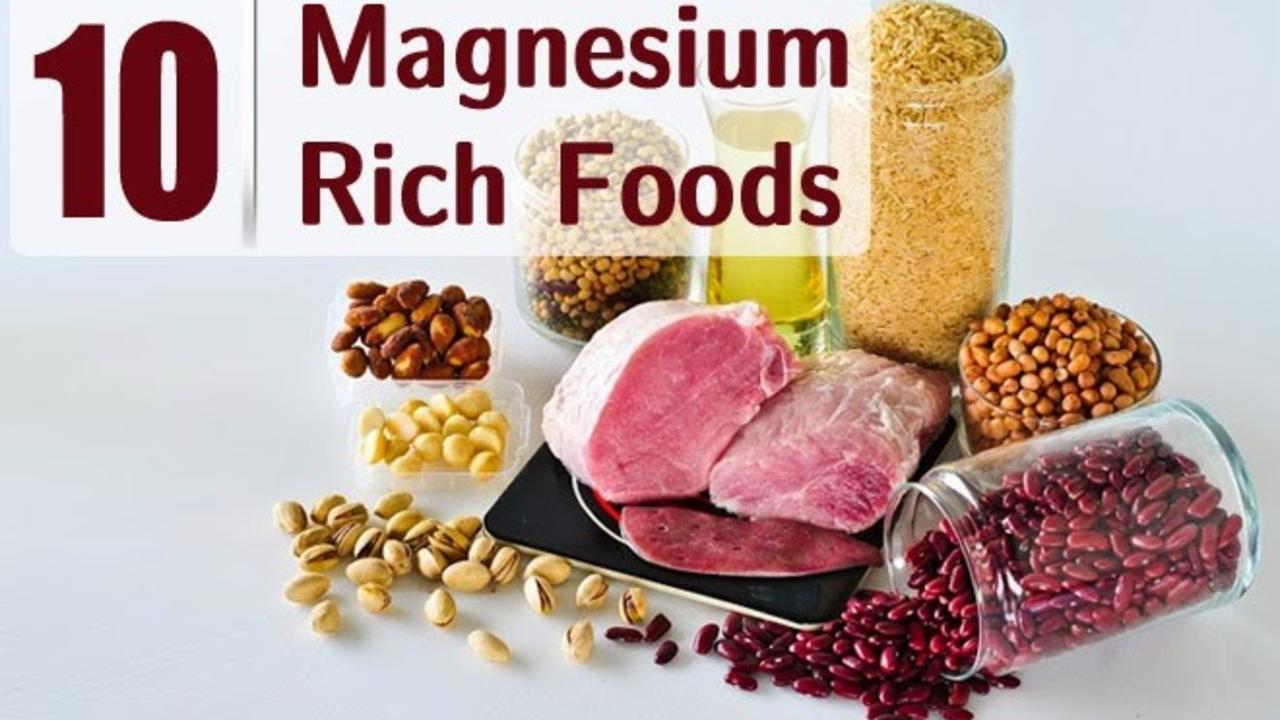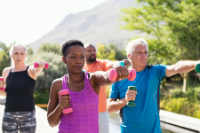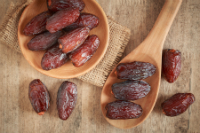Exercise is Medicine NHC March 2020 Best Health Tips.
Mar 26, 2020
March 2020 Edition
What's New
Cardiovascular exercise helps create new brain cells. This enhances brainpower and brain activity.
Exercise is Medicine

The evidence is compelling: Exercise is the prescription for a healthy life - it aids in the prevention of chronic disease, enhances brain and nervous system function, and helps us manage stress at every age. Exercise is so potent for our well-being that many medical organizations are educating physicians about the proper type and frequency of exercise for people who are in good health, as well as those managing chronic health conditions. Here's what the latest research tells us about exercise as medicine.
The data on the benefits of exercise is drawn from a variety of short and long-term studies, both with mice and human participants. Human studies included athletes, healthy adults and those with genetic, chronic, or acute health problems. Two things are clear: First, people with low levels of physical activity are at higher risk for disease, including different types of cancer, heart disease, Alzheimer's disease, and early death by any cause. Second, throughout life, inactivity can worsen arthritis symptoms, increase lower-back pain, trigger depression and anxiety, and contribute to stress-related illness.
Research shows that many positive changes occur throughout the body during and immediately after exercise. These changes often have a cumulative effect - the more consistently you exercise, the more efficient, healthy, stronger, and resilient the body becomes. The same goes for the brain. Exercise improves blood flow to the brain, helps build new blood vessels and neural connections, and has been shown to enhance memory and learning.
How much exercise? The current general recommendation is for a total of 150 minutes per week of physical activity to include two days of strength training (about 30 minutes per session) and cardiovascular exercise on the other days. Strength training can include weight training, of course, but also yoga, Pilates, exercise with bands, and some aquatic classes. Cardiovascular, or aerobic exercise is continuous movement that gets your breathing rate up and causes you to break a sweat.
How long to exercise? Typically, people exercise for 30-50 minutes per session. New research shows that even a 10-minute bout of high intensity interval training (HIIT) done consistently can bring about health benefits. The intervals consist of 20-seconds of all-out, hard-as-you-can-go bouts of movement followed by brief recoveries. If you are willing and able to push really hard in those short bouts, and do these sessions one to three times per day, a few days a week (depending on your goals), you can reap the benefits that often come with longer bouts of exercise.
What if I have a health condition? Many people with health conditions can partake in bouts of supervised intense exercise - at the level of intensity appropriate for them. Even after heart surgery, patients are encouraged to get out of bed and walk. Speak with your health practitioner about what is appropriate for your medical and wellness needs.
As you can see, the benefits of exercise go far beyond managing a healthy weight. Your health practitioner can guide you on starting the right type of exercise program for your health goals. Your doctor may even partner with a physical therapist, exercise specialist, or fitness trainer to help patients get started.
Food for Thought. . .
"To keep the body in good health is a duty, otherwise we shall not be able to keep our mind strong and clear." - Buddha
Dates: A Power Food for Athletes

For the endurance athlete, or those with a physically demanding job, dates are an excellent power food. Though odd in its appearance, the date (Phoenix dactylifera), is a rich source of fast-acting, easily digestible carbohydrates in the form of natural sugars (66 g per 100g / 3.5 oz. serving). Athletes who train for triathlons, distance running, biking or swimming events can count on dates to provide a nutrient-rich source of sustained energy.
Dates contain vitamins A and K, as well as many of the B vitamins. The fruit is also full of minerals such as copper, selenium, magnesium and manganese, all of which have important health benefits. These specific minerals are essential to the function of our cells, particularly muscle cells, and need to be replaced after strenuous physical activity. Dates also contain antioxidants that help protect cells from oxidative damage. Just one serving provides seven grams of dietary fiber, which supports healthy gut function.
When eating dates, you may want to mix them with raw nuts and seeds for an on-the-go snack. Add chopped dates to yogurt or add them as a topping to brown rice cakes for a yummy, nutritious snack before training.
Pistachio Date Granola

This is a simple, delicious, and versatile recipe. While we love the pistachio-date combination, you can shake up this recipe with your favorite nuts and seeds and dried fruit (such as Goji or Acai Berry). Also, if you prefer, you can use maple syrup instead of honey.
Serves: 12 (2/3 cup) Prep Time: 15 minutes Cooking Time: 30 minutes
Ingredients
- 2 1/2 c Oats
- 1/3 c Coconut Oil
- 1/3 c Honey or Maple Syrup
- 1/4 c Pure Maple Syrup
- 1/8-1/4 tsp Maple and/or Almond Extract
- 1 c Pistachios, roasted and chopped
- 1/2 c Almonds, sliced or chopped
- 1/2 c Sunflower Seeds
- 1 c Flaked Coconut (unsweetened, preferably)
- 1 c Pitted Dates, finely chopped
- 1 Tbs each ground flax, chia, and/or hemp seeds (optional)
- 1/2 tsp Salt
- 1 tsp Cinnamon
Preparation
- Preheat oven to 300F. Line 2 large baking sheets with parchment paper.
- In a large bowl, toss pistachios, sunflower seeds, coconut, dates, ground flax/chia/hemp seeds, almonds, salt and cinnamon; set aside.
- Add coconut oil, honey, maple syrup, and extract(s) into saucepan and heat until simmering.
- Add oatmeal to hot mixture; add dry mixture and mix ingredients with spatula until thoroughly combined.
- Divide and spread out the granola between two parchment lined cookie sheets and bake for 30 minutes, stir granola every 10 minutes.
- Let cool to room temperature until dry and crisp. Store in an airtight container.
Mighty Magnesium Helps You Meet Physical Demands

Magnesium is well-known for the role it plays in the structure and function of nerves and muscle tissue. And it's absolutely essential for nearly every chemical reaction that takes place in the body. Additionally, when you put your body through the demands of a rigorous workout or a physically demanding job (such as construction crews that work in extreme temperatures or first-responders), magnesium is in demand by the body and rapidly depleted. This is why it's important for people who compete at a high level or have demanding jobs to get enough magnesium in their diet and/or a supplement.
Of the many things that magnesium does in the body, here are a few of the more significant jobs for health and recovery. Magnesium . . .
- helps blood vessels dilate, which maintains lower blood pressure and makes it easier for the heart to pump blood.
- supports the circadian rhythm and stress-response systems in the body. When these systems function properly you get better quality of sleep, which supports immunity and lowers stress.
- facilitates the movement of the bowels.
- relaxes muscles and can help reduce soreness and cramps.
Food sources of magnesium include leafy vegetables, nuts, legumes, fish, fruits and whole grains. Because of the reduced quality of soil in which food is grown, there has been a decline in the magnesium content of food in recent years. A supplement can help ensure you are getting enough magnesium.
Maca Root Meets High Energy Demands in Athletes

Maca root (Lepidium meyenii Walp) is a cruciferous root vegetable prized by the indegenous Andean people as a remedy for stress, improving energy, and enhancing libido in men and women. Popularly known as "Peruvian Ginseng," Maca is in a class of herbs known as adaptogens, which help the body adapt to physical and mental demands. Maca has become a popular supplement to augment recovery among competitive athletes, particularly endurance athletes.
Many of the studies on Maca have been conducted in Europe and Asia, and there is a growing research interest in the U.S. There is encouraging but not conclusive evidence for using maca to enhance endurance sport performance. One short-term study showed taking a maca supplement for 14 days can improve performance time in highly-trained male cyclists. Both long-term studies and large-scale studies are necessary to understand if the effects are consistent over the course of training cycles and the duration of a competitive season. Also, it needs to be determined if the effects are the same for women and among different age groups.
Scientists don't yet understand how maca works in the body, but they have attributed the health benefits to the many vitamins (such as B vitamins), minerals (iron, potassium, copper), and the unique plant compounds it contains, including 'macamides' and other active metabolites known as glucosinolates, which are of great interest to nutrition scientists.
Maca is available in powder, tincture, and capsule form. To determine if maca can support your athletic endeavors, consult with a holistic physician who is trained in botanical medicine.
Sauna Therapy: Sweat Out the Toxins

Most athletes and health-conscious people follow a nutritious, whole foods diet, which is one of several steps essential to ridding the body of metabolic build-up -- that is, the by-products the body accumulates during times of high stress, especially physical stress. Add to this, all the toxins that get into the body through soil and water, the food supply, the air we breathe, and medications we take, and you've got a perfect storm of physiological debris that can impact your health and performance. In addition to "clean eating," one of the best things you can do for your health is to support your liver in it's moment-to-moment detoxing efforts. One easy way to do this is to sweat out toxins through regular sauna or steam sessions.
Steam baths and saunas promote the release of toxins through sweating, facilitating the oxygenation of tissue and breakdown of metabolites. Depending upon your age and health status, you will need to consult with your holistic physician for the ideal temperature and duration for your sauna or steam sessions. Another option you may want to consider trying is the infrared sauna treatment. Infrared saunas heat the body's tissues several inches deep, which further enhances metabolic processes, circulation and oxygenation. These treatments also can reduce muscle soreness and promote relaxation.
Guiding Principles



